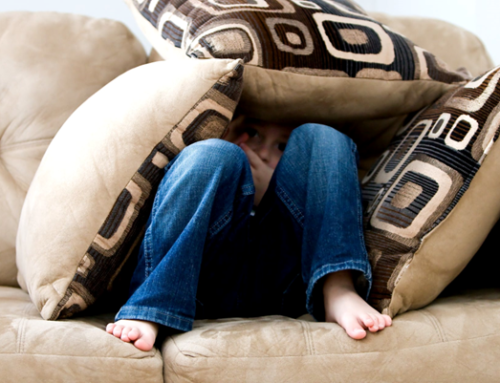When kids are little, parents will frequently ask their teachers – “Do they have a friend?”
School is for learning the academic curriculum of course, but also social skills. Some of our kids need just as much support learning to build friendships as they do with solving maths sums.

Kids can struggle to find a friend
Most parents understand instinctively the importance of friendship for children at every stage of development. They care deeply, and they want to help, yet they understand that for kids finding friends (and keeping them) is tricky and not at all straightforward.
As parents, when we see our children struggle, we’re often compelled to jump in and try to fix the situation. We want to help – and that’s a good thing. But when it comes to the complexities of social interaction, our “helpful advice” can end up being pretty unhelpful.
For instance, feeding your kids lines to use – “Just ask them if they have pets” or “What about asking if they have any hobbies”, doesn’t help them to know what to do or say next.
Getting in and out of a conversation isn’t intuitive for some of our children. We can wonder why they find it hard. We may think – “Surely the way to get better at socialising is to just do it.” If your child is struggling, then no it may not be the solution for them.
So, when our kids have a bad day at school, complaining to us that they had no one to play with, we can be left scratching our heads about what to do or say. It’s difficult as a parent, not seeing what goes on at school. We’re stuck wondering what the situation is – and what to do about it.
Age And Stage Matter
Developmental factors are relevant. Ask yourself the question – “What is developmentally normal for kids of my child’s age and stage?”
Depending on their age, chances are your child isn’t the only one learning how to be a good friend. Play is a child’s first language. Preschool children learn to play alongside each other. It’s important to remember that waiting and sharing are advanced skills at this age. Young kids will find it difficult to wait their turn. Over time and with some expected conflict, kids learn to take turns. You can nurture the process with phrases like:
“It’s hard to wait for your turn on the scooter – I can see you really want to have a go now. It feels like ages to wait.”
“I saw the way you paused in the game and waited until your friend finished their turn. It was considerate of you to do that.”
Older children can find it hard to follow all the unwritten rules of conversation that adults take for granted. They butt in and miss cues when other people don’t want to listen. Dinner time can be an interesting experience where no one listens and everyone tries to speak all at once. Learning what to say and when to say it is a process. Remembering not to interrupt is an important skill to master for success in all spheres of our lives. Waiting, watching others and reading the room are all things we should pay attention to.
We can influence what children pay attention by saying:
“Just now when I was speaking to your friend’s mum you wanted to say something. Instead of continuing with your comment you watched me put my finger to my lips and you waited until I finished what I had to say.That was very patient of you.”
“Thank you for being quiet while mommy was on the phone, it really helped me focus!”
Foster Empathy
“I’m in it with you. I’m not here to fix you. I’m not here to feel it for you. I’m here to feel it with you and let you know you’re not alone.”
I LOVE this quote from Brené Brown, as it reminds us how to achieve the holy grail of parenting – how to be both firm and loving.
When we put this into practice, listening to a child’s concern and empathising effectively, they get a sense that we understand them. When kids feel understood they can accept their own difficult feelings. Begin with actual listening. Whatever words you choose to say are going to hit the spot when they convey the idea that you are putting yourselves in their position. We’re modelling how to do perspective taking.
We can put that into action when kids come home from school and let it all hang out, either through their actions or their words. Come back with actions and words to match the level of upset they feel. Use words that involve perspective taking like:
“It sounds like you had a rough day” or “Something is bothering you about…..”
When your child is ready to tell you what happened, you can say something like:
“You felt hurt when she said that” or “How frustrating!”
At every stage of development empathy is the key to learning. Kids become empathetic people by simply being around others who get them. We know they will mess up because none of us get things right all the time. Socialising isn’t a one way street – it helps to remember it’s not just our kids who are struggling with this. Other kids are pretty unpredictable, have immature brains and lack skills too.
Our best way to support them is by showing we understand so that we can soothe their stressed out emotional brain and help them to move towards calm. This creates a pattern where it is more likely kids will tell us about the problem that arises in future. We want to keep those communication channels open so that they will feel brave enough to do that.
Teach Skills At The Right Time (AKA – Read The Room)
The point here is that we don’t try to teach skills when kids are upset. Soothing happens first. Then when everyone is calmer we can help with meeting the need. We need to set a realistic expectation for our particular child. Finding and keeping friends is a long game. Friendship experts say It takes an adult 200 hours to make a really good friend. So it must take much longer for children to develop social and emotional skills and the maturity they need to be a good friend.
Find Common Interests
Having things in common makes it easier for friendships to develop. So if your child loves something specific like archery or bowling these could be ways to develop some friendships based on the shared interest. Try something like:
“I’ve noticed you like to play cricket, that is something you’ve always been interested in. You’re the kind of person who likes cricket and you’ve found other friends who like it too.”
Of course, not everyone is a fan of large group activities or games. If groups are too much then finding one like minded individual could work better:
“I have noticed how you like to play with one friend and do things together. How about we plan a monopoly session with Olivia/Sam?”
Provide Plenty Of Opportunities
Friendship starts with being friendly. As adults we can create an environment rich with opportunities. Once the conditions are right friendships might start to grow. Finding our tribe happens at our child’s pace when they find friends who are their kind of people. When they do it’s worth it.
As your child learns the vital skills of friendship, your job is to be the companion on their journey.




